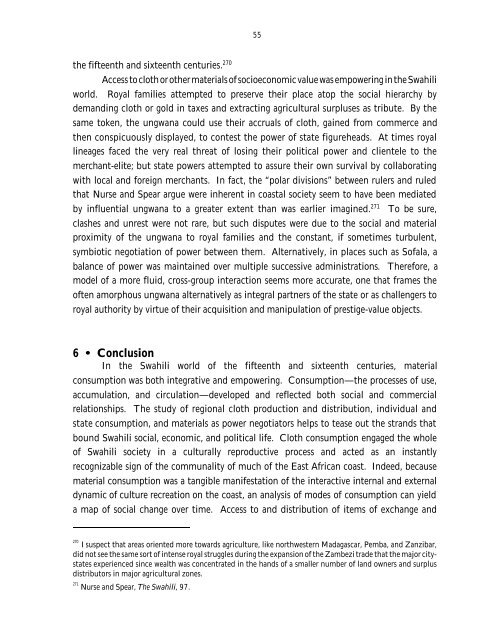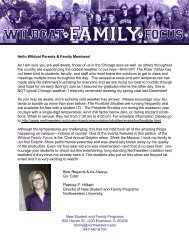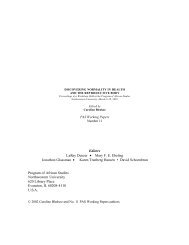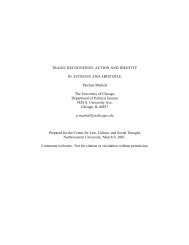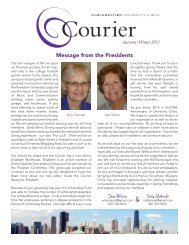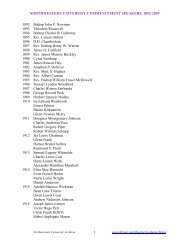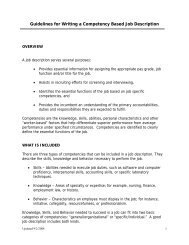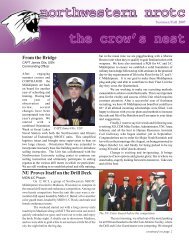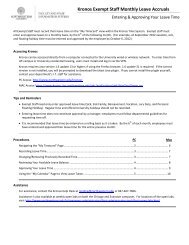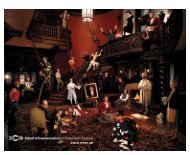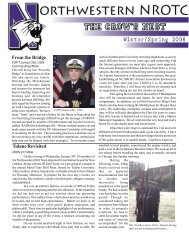Artistry Permits and Custom May Ordain - Northwestern University
Artistry Permits and Custom May Ordain - Northwestern University
Artistry Permits and Custom May Ordain - Northwestern University
Create successful ePaper yourself
Turn your PDF publications into a flip-book with our unique Google optimized e-Paper software.
the fifteenth <strong>and</strong> sixteenth centuries. 270<br />
55<br />
Access to cloth or other materials of socioeconomic value was empowering in the Swahili<br />
world. Royal families attempted to preserve their place atop the social hierarchy by<br />
dem<strong>and</strong>ing cloth or gold in taxes <strong>and</strong> extracting agricultural surpluses as tribute. By the<br />
same token, the ungwana could use their accruals of cloth, gained from commerce <strong>and</strong><br />
then conspicuously displayed, to contest the power of state figureheads. At times royal<br />
lineages faced the very real threat of losing their political power <strong>and</strong> clientele to the<br />
merchant-elite; but state powers attempted to assure their own survival by collaborating<br />
with local <strong>and</strong> foreign merchants. In fact, the “polar divisions” between rulers <strong>and</strong> ruled<br />
that Nurse <strong>and</strong> Spear argue were inherent in coastal society seem to have been mediated<br />
by influential ungwana to a greater extent than was earlier imagined. 271 To be sure,<br />
clashes <strong>and</strong> unrest were not rare, but such disputes were due to the social <strong>and</strong> material<br />
proximity of the ungwana to royal families <strong>and</strong> the constant, if sometimes turbulent,<br />
symbiotic negotiation of power between them. Alternatively, in places such as Sofala, a<br />
balance of power was maintained over multiple successive administrations. Therefore, a<br />
model of a more fluid, cross-group interaction seems more accurate, one that frames the<br />
often amorphous ungwana alternatively as integral partners of the state or as challengers to<br />
royal authority by virtue of their acquisition <strong>and</strong> manipulation of prestige-value objects.<br />
6 �� Conclusion<br />
In the Swahili world of the fifteenth <strong>and</strong> sixteenth centuries, material<br />
consumption was both integrative <strong>and</strong> empowering. Consumption—the processes of use,<br />
accumulation, <strong>and</strong> circulation—developed <strong>and</strong> reflected both social <strong>and</strong> commercial<br />
relationships. The study of regional cloth production <strong>and</strong> distribution, individual <strong>and</strong><br />
state consumption, <strong>and</strong> materials as power negotiators helps to tease out the str<strong>and</strong>s that<br />
bound Swahili social, economic, <strong>and</strong> political life. Cloth consumption engaged the whole<br />
of Swahili society in a culturally reproductive process <strong>and</strong> acted as an instantly<br />
recognizable sign of the communality of much of the East African coast. Indeed, because<br />
material consumption was a tangible manifestation of the interactive internal <strong>and</strong> external<br />
dynamic of culture recreation on the coast, an analysis of modes of consumption can yield<br />
a map of social change over time. Access to <strong>and</strong> distribution of items of exchange <strong>and</strong><br />
270 I suspect that areas oriented more towards agriculture, like northwestern Madagascar, Pemba, <strong>and</strong> Zanzibar,<br />
did not see the same sort of intense royal struggles during the expansion of the Zambezi trade that the major citystates<br />
experienced since wealth was concentrated in the h<strong>and</strong>s of a smaller number of l<strong>and</strong> owners <strong>and</strong> surplus<br />
distributors in major agricultural zones.<br />
271 Nurse <strong>and</strong> Spear, The Swahili, 97.


